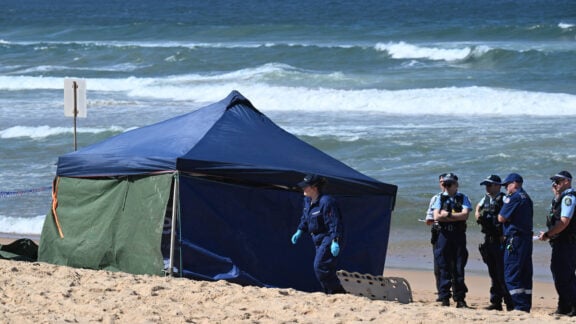Yanna Terzi did not make it to the Eurovision Song Contest finals. For the national debate, this constitutes some kind of insult. It is not the first time it has happened; but every time, it sparks a round of debate and introspection, as the nation looks for the answers to this failure.
“What did we do wrong? Was it the song? Was it too ‘ethnic’? Not ‘ethnic’ enough? Should we have sent a ballad? Should we not have sent a ballad? Were the costumes wrong? The choreography? Was it the fault of the Baltic Bloc conspirators? Or just a stroke of bad luck, something to do with the order the songs that presented that made voters not pay attention?”
Questions like that echo through various Greek media outlets each year, during Eurovision week, but also before and after.
And is really hard to distinguish how much of this discussion is tongue-in-cheek and how much of it is serious. We’re a touchy lot, that’s pretty much a given. We don’t like to be judged, unless it is to be judged positively. And we really pride ourselves in our dancing and singing and overall being the soul of the party that being expelled from the most camp, extravagant, loud party Europe produces each year is a special kind of insult.
It’s not clear also why we associate this competition with our self-respect as a nation. Maybe it has to do with the fact that it’s ourselves who put this kind of gravitas to a bubblegum pop competition. From the time when Marinella sang an unofficial anthem of the Greek Tourism Organisation, Ligo Krasi, Ligo Thalassa Kai T’ Agori Mou (A Bit of Wine, A Bit of Sea and My Boy) to the time when Helena Paparizou actually won the contest wrapped in the Greek flag, we’ve been throwing at our European (and not so European) friends lyrics filled with references to the Aegean, the sea, the sun, the islands – or even to Plato and Aristotle.
It’s not only our fault, though. Because the Eurovisioin Song Contest is about everything else exept songs. Think about it. In its 63 years of history, this event has produced over 1,500 songs. Out of them, only two have actually become hits outside of the Eurovision context; ABBA’s Waterloo and Domenico Modugno’s Volare, which did not even win the competition.
All the other songs, dozens and dozens of pop mush, have only lived – and continue to live – within the realm of the Eurovision Song Contest. What’s more hard to explain is that the event has been growing. The Oscars have been seeing their impact diminish within the years – despite remaining the point of reference for the movie industry – yet Eurovision grows and grows.
What started as one night of tepid European light entertainment is now a massive organisation producing an event that lasts for months. The contest itself is now branded as ‘Eurovision week’ – it comprises two semifinals and a final. That’s a lot of fuss for something that produces no memorable hits.
There is a name for the type of songs that dominate this competition: eurotrash. It’s the pop fodder coming out of the sound system of a decadent seaside bar in Ibiza, Rhodes, or Ulcinj, where half-drunk tourists dance the night away – or even at karaoke bars in Baku, where tired businessmen gather to shake off the tension of geopolitical strategy.
Which brings us to the Baltic Bloc. For at least 15 years, the continuous expansion of the competition, and the inclusion of countries not remotely European, from Israel to Azerbaijan, to Australia, as a matter of fact, has made Eurovision Song contest the testing ground for the cultural shift happening across Europe, or even the Globe. Through this anodyne TV event, watched by millions of spectators, cheering for outrageous songs and even more outrageous outfits, we have been adapting to concepts of otherness and sameness, to national identity and inclusion. That’s why we have normalised the quasi-conspiracy theorist analysis of the Baltic Bloc and the Scandinavian Bloc of countries fighting to prevail within the competition, among other alliances of ‘core’ member countries (that is the ‘big five’: Germany, Italy, Spain, France and the UK, which are not subject to the semifinal ordeal, despite rarely being relevant anymore) and outsiders. And that’s why we have found ourselves, as Greeks with a penchant for campiness, rooting for a Greek-Albanian bouzouki-popstar representing Cyprus on Saturday night.
If something epitomises the progress and evolution that has been made in the country for the past two decades and the changes in the cultural mix, this is it. And Eurovision gives this mix a stage to manifest itself, all these subcultures dancing together, covered in glitter and feathers.
The world is a strange place and geopolitics is a hard game to play, particularly if your weapon is a bad pop song and a flashy piece of garment. So yes, let Greeks lament their failure to be part of the party. They will be healed soon. And get ready to welcome semi-drunk tourists with the sounds of our previous Eurovision entries – or the actual bouzouki-pop hit of the season.







